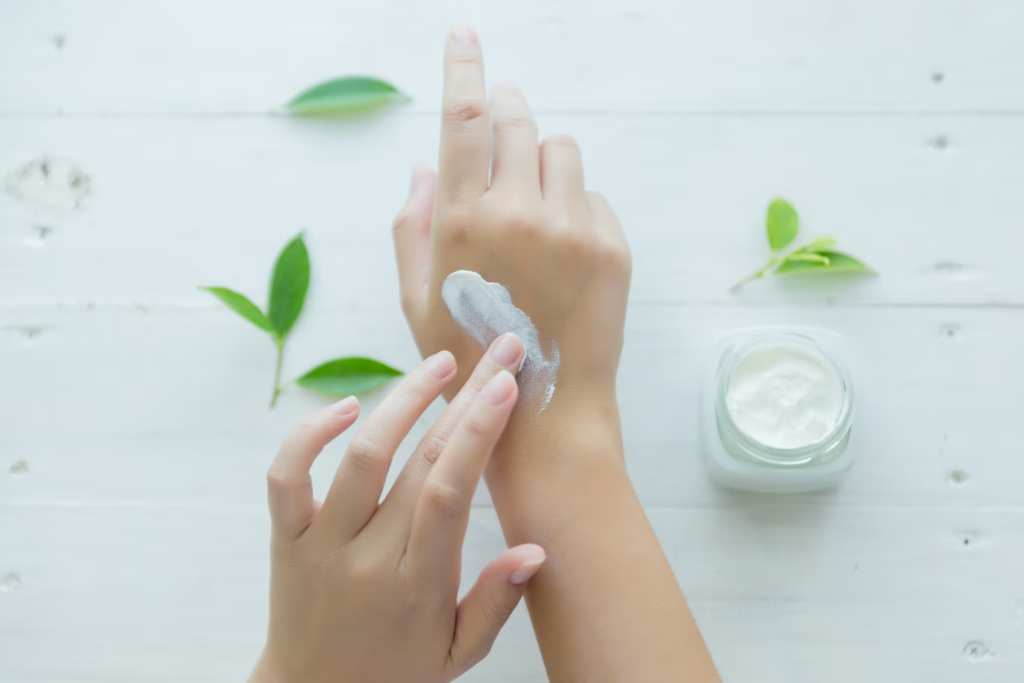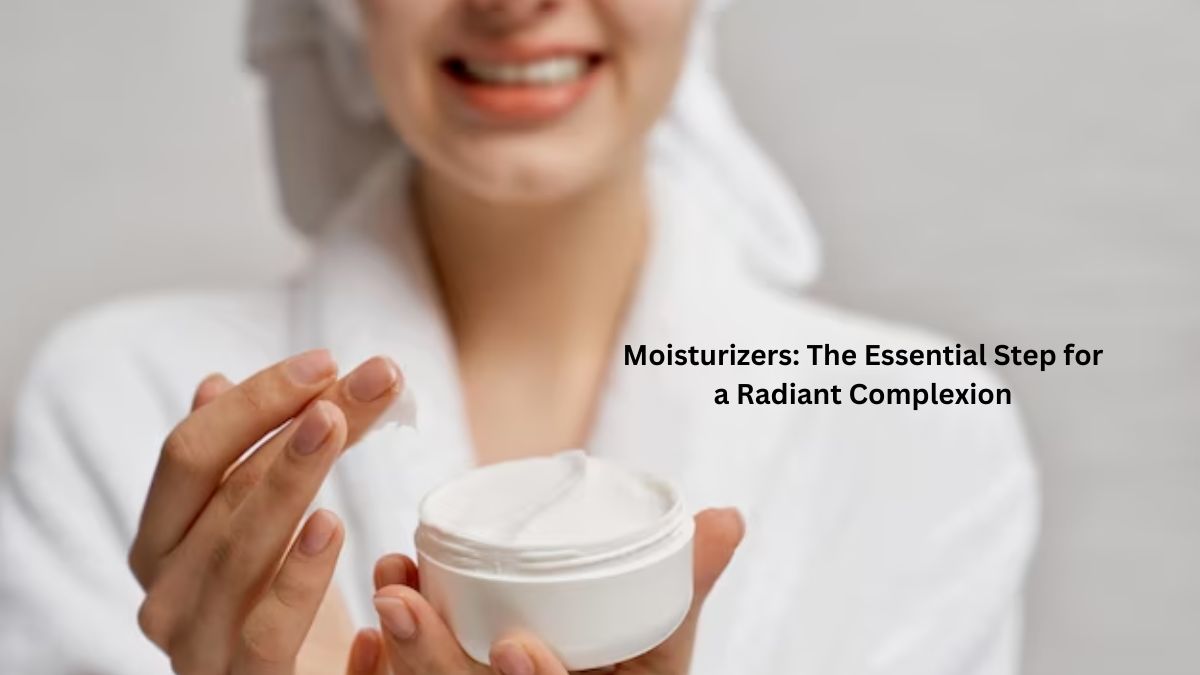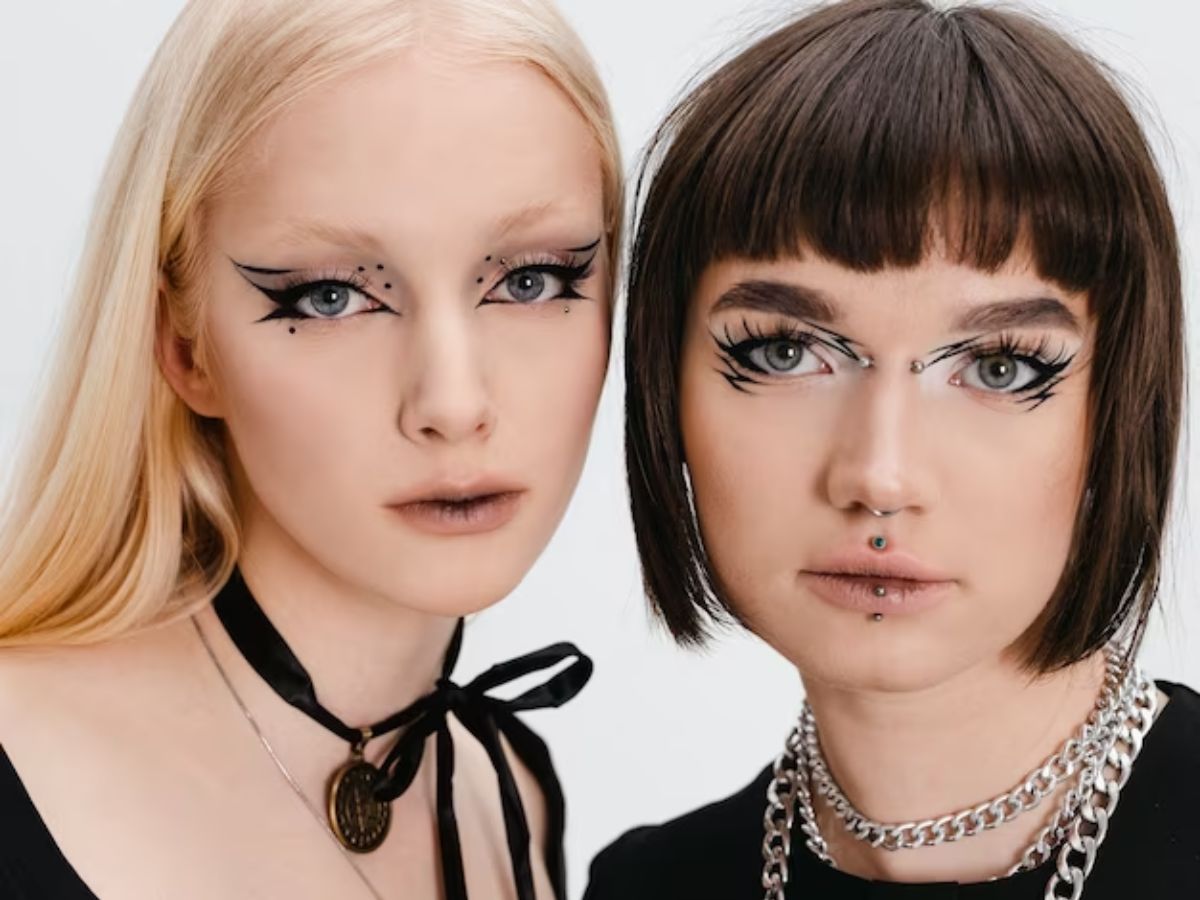Introduction:
Moisturizer – a seemingly simple product, yet a cornerstone of an effective skincare routine. From preventing dryness to maintaining a youthful glow, moisturizers play a vital role in promoting healthy skin. In this comprehensive guide, we delve into the world of moisturizers, exploring their benefits, types, application techniques, and how to choose the perfect one for your unique skin needs.
Benefits of Using Moisturizers:

Moisturizers are designed to provide hydration to the skin by preventing water loss and sealing in moisture. Here are some key benefits of incorporating a moisturizer into your daily skincare routine:
- Hydration: Skin requires adequate hydration to function optimally. Moisturizers help replenish moisture levels, leaving the skin soft, supple, and glowing.
- Barrier Protection: A well-moisturized skin barrier acts as a shield against environmental stressors like pollution, harsh weather, and UV radiation.
- Anti-Aging: Regular moisturization helps reduce the appearance of fine lines and wrinkles, as well as maintains the skin’s elasticity, promoting a youthful complexion.
- Even Skin Tone: Certain moisturizers contain ingredients that help fade dark spots, hyperpigmentation, and redness, leading to a more even skin tone.
- Soothing Effects: Moisturizers with ingredients like aloe vera and chamomile can provide relief to irritated or sensitive skin, soothing redness and inflammation.
Types of Moisturizers:
Moisturizers come in various formulations to suit different skin types and concerns. The three main types are:
- Lotion: Lightweight and suitable for normal to slightly dry skin. They absorb quickly and are great for daily use.
- Cream: Thicker and more emollient, creams are ideal for drier skin types. They provide deeper hydration and are often recommended for nighttime use.
- Gel: Lightweight and water-based, gels are best for oily and acne-prone skin. They provide hydration without clogging pores.
Application Techniques:
Proper application of moisturizer enhances its effectiveness. Follow these steps for optimal results:
- Cleanse: Start with a cleansed face to ensure that the moisturizer is applied to a clean surface.
- Toner/Serum: If you use toner or serum, apply them before your moisturizer for maximum absorption.
- Amount: Use a pea-sized amount for the face. Gently warm the product between your fingertips to make it easier to spread.
- Even Distribution: Apply the moisturizer using gentle upward and outward motions. Pay extra attention to drier areas.
- Neck and Décolletage: Don’t forget to extend the application to your neck and chest for consistent hydration.
Choosing the Right Moisturizer:
Selecting the perfect moisturizer involves understanding your skin’s unique needs:
- Skin Type: Consider whether you have oily, dry, combination, or sensitive skin. Choose a moisturizer formulated for your specific skin type.
- Ingredients: Look for ingredients like hyaluronic acid, glycerin, ceramides, and antioxidants for hydration and skin barrier support.
- Additional Concerns: If you have specific concerns (e.g., acne, anti-aging, brightening), opt for a moisturizer that addresses these issues with specialized ingredients.
Conclusion:
Moisturizers are not just about adding a layer of hydration – they are the cornerstone of a healthy skincare routine. By understanding your skin type, choosing the right moisturizer, and adopting proper application techniques, you can unlock the secrets to radiant, hydrated, and youthful skin. So, go ahead and embrace the magic of moisturizers, and watch your skin flourish with renewed vitality.
Frequently Asked Questions about Moisturizers
1. What are moisturizers, and why are they important?
Moisturizers are skincare products designed to hydrate and nourish the skin. They help maintain the skin’s moisture balance, prevent dryness, and support overall skin health.
2. How do moisturizers work?
Moisturizers work by creating a protective barrier on the skin’s surface, sealing in moisture and preventing water loss. They contain ingredients that hydrate the skin and improve its texture.
3. What are the benefits of using moisturizers?
Using moisturizers helps keep the skin hydrated, soft, and supple. They also enhance the skin’s natural barrier, promote an even skin tone, and can help reduce the appearance of fine lines and wrinkles.
4. How do I choose the right moisturizer for my skin type?
Consider your skin type (oily, dry, combination), any specific concerns (acne, aging), and ingredients (hyaluronic acid, ceramides) that suit your needs. Opt for a formula that matches your skin’s requirements.
5. Can moisturizers cause breakouts for acne-prone skin?
While some heavy or greasy moisturizers might contribute to breakouts, there are oil-free, non-comedogenic options available for acne-prone skin. Look for products labeled as such.
6. When should I apply moisturizer?
Apply moisturizer after cleansing and toning your skin. It’s beneficial to use it in the morning and evening to maintain hydration throughout the day and night.
7. Can I use the same moisturizer for my face and body?
While some moisturizers can be used on both the face and body, facial skin is often more sensitive. Consider using a specialized facial moisturizer for your face and a separate one for your body.
8. Should I use a separate moisturizer for daytime and nighttime?
Daytime moisturizers often include sun protection, while nighttime moisturizers are usually richer and focus on repairing and nourishing the skin as you sleep. It’s beneficial to use both for a comprehensive routine.
9. Can I layer moisturizer with other skincare products?
Yes, you can layer moisturizer with other skincare products like serums and sunscreen. Apply lighter products first and finish with the moisturizer to lock in hydration.
10. How often should I apply moisturizer?
You should apply moisturizer at least twice a day – in the morning and before bed. However, you can adjust the frequency based on your skin’s needs and your daily routine.
11. Are there natural alternatives to commercial moisturizers?
Yes, natural oils like coconut oil, jojoba oil, and shea butter can be used as natural moisturizers. However, it’s important to patch-test and ensure they suit your skin.
12. Can men use moisturizers as part of their skincare routine?
Absolutely. Skincare knows no gender boundaries. Men can benefit from moisturizers to keep their skin hydrated and healthy.
13. Are there moisturizers for sensitive skin?
Yes, there are moisturizers formulated specifically for sensitive skin, often with minimal fragrance and gentle ingredients to avoid irritation.
14. Can I use a moisturizer with sunscreen at night?
It’s not necessary to use a moisturizer with sunscreen at night. Sunscreen is meant for daytime use to protect against UV rays.
15. How long does a moisturizer’s effect last?
The duration of a moisturizer’s effect depends on factors like your skin type, the environment, and your overall skincare routine. Reapply as needed to maintain hydration.
Remember, individual skin types and needs vary, so it’s always a good idea to consult a dermatologist if you have specific concerns or questions about using moisturizers.







































